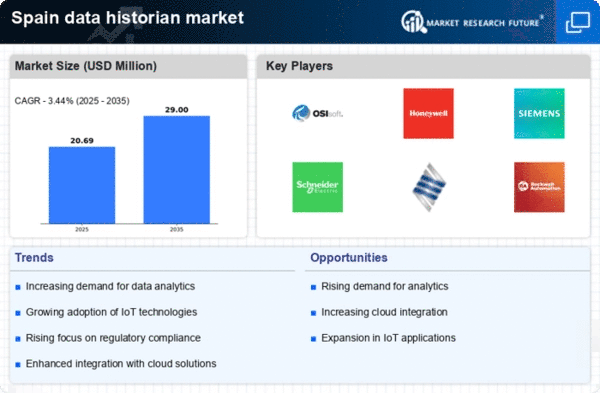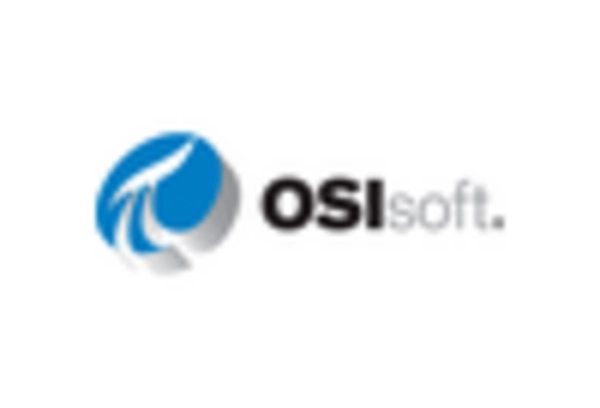Integration with IoT Technologies
The integration of Internet of Things (IoT) technologies is reshaping the data historian market in Spain. As industries increasingly adopt IoT devices, the need for effective data management solutions becomes paramount. Data historians are essential for collecting, storing, and analyzing vast amounts of data generated by IoT sensors. This integration is projected to drive market growth by approximately 18% in the coming years. The data historian market is thus positioned to capitalize on the expanding IoT ecosystem, providing solutions that enable organizations to harness the full potential of their data.
Expansion of Industrial Automation
The ongoing expansion of industrial automation in Spain significantly impacts the data historian market. As companies automate their processes, the need for comprehensive data collection and analysis becomes critical. Data historians provide the necessary infrastructure to support automated systems, enabling organizations to monitor performance and optimize operations. This trend is anticipated to drive market growth at a rate of approximately 16% over the next few years. The data historian market is thus well-positioned to support the increasing demand for automation solutions, ensuring that businesses can effectively manage their data in an automated environment.
Growing Focus on Predictive Maintenance
Predictive maintenance is emerging as a critical driver for the data historian market in Spain. Industries are increasingly adopting data-driven strategies to anticipate equipment failures and optimize maintenance schedules. This proactive approach not only reduces downtime but also lowers operational costs. The market for predictive maintenance solutions is expected to grow by around 14% as organizations recognize the value of leveraging historical data for future insights. The data historian market is integral to this trend, offering tools that facilitate the analysis of historical performance data to inform maintenance decisions.
Rising Demand for Real-Time Data Access
The data historian market in Spain experiences a notable surge in demand for real-time data access. Industries such as manufacturing, energy, and utilities increasingly rely on immediate data insights to enhance operational efficiency. This trend is driven by the need for timely decision-making and improved responsiveness to market changes. According to recent estimates, the market for real-time data solutions is projected to grow at a CAGR of approximately 15% over the next five years. As organizations seek to optimize their processes, the data historian market is positioned to benefit significantly from this shift towards real-time analytics.
Regulatory Compliance and Data Governance
In Spain, the data historian market is influenced by stringent regulatory compliance requirements. Organizations are compelled to adopt robust data governance frameworks to ensure adherence to local and EU regulations. This necessity drives investments in data historian solutions that facilitate accurate data tracking and reporting. The market is expected to witness a growth rate of around 12% as companies prioritize compliance and risk management. The data historian market plays a crucial role in helping businesses navigate these complex regulatory landscapes, thereby enhancing their operational integrity and trustworthiness.
















